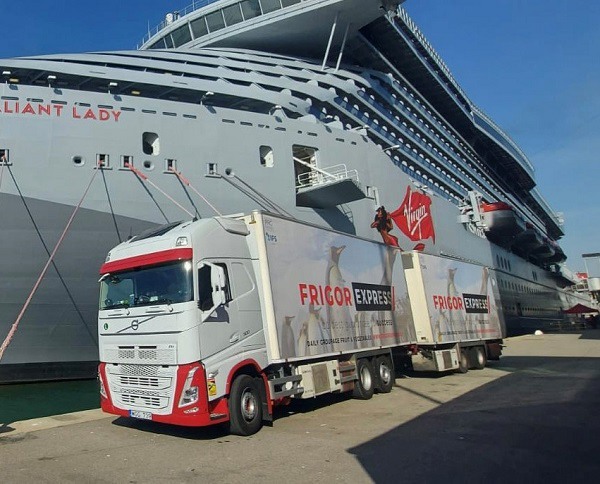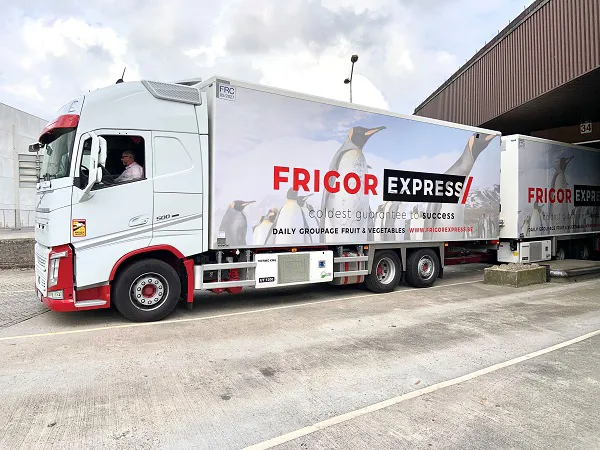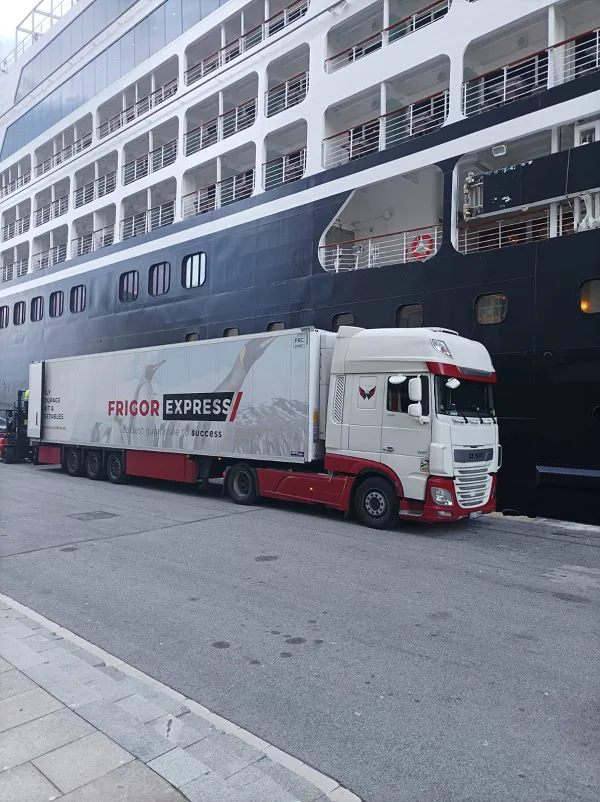In the Dutch transport sector, fuel is the second-largest cost item, after wages. Both are under pressure: wages due to staff shortages; fuel, the ever-increasing diesel prices. Add equipment deliveries are subject to considerable delays and the many challenges facing the logistics sector to this.
"In these turbulent times, Frigorexpress aims to grow by 20%," says Rob de Feiter. "We currently have a 160-vehicle fleet; by the end of the year, that should reach 185."

The new vehicles have been ordered, but the shortage of specific parts has significantly delayed their delivery. That is due to the war in Ukraine and lockdowns in China. These have disrupted the global economy. But delayed deliveries are not even the biggest concern.
The Russia/Ukraine conflict is pushing energy prices up worldwide, which has translated into sky-high diesel prices. Over the past ten years, diesel's liter price has fluctuated between €0.92 (January 2016) and €1.30 (September 2021).
The price dropped sharply when COVID-19 broke out but began rising sharply in November 2020. Since the Russian invasion of Ukraine on February 24, the diesel price seems to be on its way to €2/liter. According to Transport en Logistics Netherlands (TLN), the biggest problem for haulers is not so much how much diesel costs; rather, how quickly and sharply that price rises.
The last time this situation occurred to this extent was in 2000 when roads and oil depots were blocked. Since then, more and more carriers have started including a fuel clause in client contracts. TLN estimates that 80% of transportation companies now use this.
Rob does not expect diesel prices to stop climbing any time soon. "It's an enormous cost for the sector, but we want to be as transparent as possible in this regard. Other transporters are already applying a weekly fuel surcharge; we currently still do so monthly."

The entire sector has also been dealing with a driver shortage for a while now, especially in international transport. This uses mostly Eastern European drivers from the Baltic states, Belarus, and Ukraine. "It's very difficult to find international drivers. Our vehicles are double crewed. We count three drivers per vehicle, one at home and two driving. We only have a few Ukrainian drivers, so that's not yet an acute problem for us," says Rob.
Frigorexpress began a sustainability drive a few years ago. "All our trucks have up-to-date Euro6 engines. Our clients demand sustainability and, thus, expect us to work sustainably. We've had innovative Bi-Temptrailers for roughly the past two years."
"One of these can maintain several temperatures, so you don't need to place separate cooling engines in them. That saves space. We also try to make our trips as efficient as possible by keeping vehicles on certain routes. That's why we also do a bit of general cargo," De Feiter explains.
"We have as many vehicles as possible in Perpignan, France. Then, we can bring imports back to Benelux and Germany during the Spanish/Moroccan season and cargo from the ports in Marseille. As a result, we drive as few empty miles as possible, which is, of course, the trick to transportation."
In September 2021, FrigorExpress and Fresh Connection entered into a close partnership. Fresh Connection's expertise in forwarding, cold storage, and customs handling is an excellent fit with Frigorexpress' specialty: refrigerated transport.

The collaboration has broadened the possibilities for both companies. Fresh Connection can more easily call on FrigorExpress' rolling stock. And Fresh Connection warehouses, close to the Dutch border, are at FrigorExpress' disposal. "Our areas of expertise strengthen each other," says Rob.
"This collaboration means we offer our customers great one-stop-shop service. They simply put their entire logistics chain in our hands and we organize everything, from when the ship arrives in Antwerp or Rotterdam until the pallets are delivered in, say, Perpignan. That, in turn, helps us retain clients. It's a win-win-win."
Rob notices that customers are increasingly looking for a partner, not just a ride from A to B. That is also why Frigorexpress continues to grow. "Our clients expect us to grow with them. Transport sector fleets aren't doing that. I think people looking for the lowest price are going to have a tough time now."
"We're at a tipping point. Customers will increasingly opt for certainty rather than the cheapest solution because if they keep doing that, they'll miss out at some point. That's already happening in the maritime sector," concludes Rob.

 www.frigorexpress.be
www.frigorexpress.be